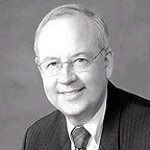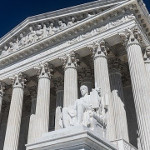Chinese Government Sued in Multiple Class Actions by U.S. Citizens and Businesses
“An initial wave of three class actions stemming from COVID-19 were filed against the Chinese government this past week. Each action claims the Chinese government is liable for injuries and damages in the United States caused by the virus. Other suits no doubt will follow,” discusses Simren K. Gill in Bryan Cave Leighton Paisner’s Insights.
“The first suit, Logan Alters, et al. v. People’s Republic of China, et al., Case No. 1:20-cv-21108-UU, filed in the United States District Court for the Southern District of Florida, in Miami, asserts claims for negligence, negligent and intentional infliction of emotional distress, strict liability for ultra-hazardous activity, and public nuisance against the People’s Republic of China (“PRC”) and its National Health Commission, Ministry of Emergency Management, and Ministry of Civil Affairs, as well as the People’s Governments of Hubei Province and Wuhan City, where the virus allegedly originated. Plaintiffs seek to certify national and Florida “non-commercial tort” and “commercial” classes consisting of all persons and legal entities who suffered injury, damage and loss related to the COVID-19 outbreak.”



